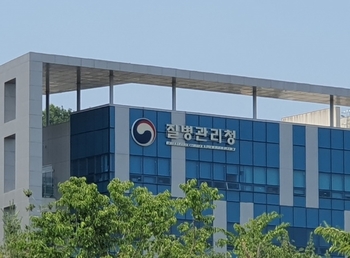[뉴스줌=정진태기자] The Korea Disease Control and Prevention Agency, the National Institute of Health, the National Institute of Infectious Diseases, and the Ministry of Science and ICT announced that they held an infectious disease research forum on November 15 with the theme of ‘Cooperation between research institutions related to vaccines and treatments for new infectious diseases.’
The Infectious Disease Research Forum, which celebrates its 11th anniversary this year, is hosted by the Pan-Ministry Infectious Disease Response Research and Development Promotion Committee (Infectious Disease Research Institute Council)* and is jointly organized by the National Institute of Infectious Diseases under the Korea Disease Control and Prevention Agency and participating organizations under the Ministry of Science and ICT (Korea Research Institute of Bioscience and Biotechnology, Korea Chemical Industry Association). It was jointly organized by the Korea Research Institute and Korea Virus Research Institute.
This forum included Director Ji Young-mi of the Korea Disease Control and Prevention Agency, First Vice Minister of Science and ICT Lee Chang-yoon, National Institute of Health Director Park Hyun-young, Korea Research Institute of Bioscience and Biotechnology Director Kim Jang-seong, Korea Research Institute of Chemical Technology Director Lee Yeong-guk, National Institute of Infectious Diseases Director Jang Hee-chang, Korea Institute for Basic Virology Director Choi Young-ki, Major infectious disease-related industry, academic, research, and government officials, including Chairman Lee Dong-gun of the Korean Society of Infectious Diseases, participated on-site and in a non-face-to-face manner.
Prior to the start of the forum, in order to strengthen cooperation in preemptive preparedness for new infectious diseases, the two organizations signed a business agreement (MOU) with the main contents of establishing a rapid development system for vaccines and treatments and cooperation in the field of research infrastructure for this purpose.
Through this business agreement, the two organizations promised to: ▲ joint research between related research institutions for rapid development of vaccines and treatments, ▲ establish research infrastructure and cooperate in resource and information exchange, and ▲ establish strategies and promote joint research projects.
At this forum, the mission-centered response strategy of public research institutions (disease management – Ministry of Science and ICT) to implement the above business agreement and the expansion plan for the (multi-ministerial) rapid development cooperation project for vaccines and treatments were discussed.
Forum ▲ In the keynote lecture, ‘(Disease Control – Ministry of Science and ICT) public research institute mission-oriented vaccine and treatment rapid development cooperation project implementation plan (draft)’ was discussed, and ▲ Part 1 to 3 topic lectures discussed ‘vaccine’ and ‘treatment’. , a presentation was made on cooperation measures between each research institute under the topic of ‘research infrastructure’. ▲In the fourth part of the panel discussion, officials from academia, research institutes, and government agencies attended and discussed the overall topic of “Preparing cooperation measures related to vaccines, treatments, and research infrastructure to respond to emerging infectious diseases.”
Director Ji Young-mi of the Korea Disease Control and Prevention Agency said, “Recently, in order to implement the ‘mid- to long-term plan to prepare for new infectious disease pandemics,’ the ‘mRNA vaccine development support project for pandemics’ is being promoted as a new project for 25 years, and to quickly respond to new infectious diseases in the future. “We plan to secure a domestic mRNA vaccine platform as a national strategic technology and promote continuous investment and cooperation between related organizations so that it can be used for various infectious diseases,” he said.
“It is significant that through this business agreement and joint hosting of the forum, four public research institutions have provided a venue to discuss cooperation plans for the rapid development of mission-oriented vaccines and treatments, and the novel influenza, which is likely to become the next pandemic in the future, is significant. “For preemptive preparedness and response, we will establish a close cooperation system between related organizations and bring together government-wide capabilities for technology development and support.”
Lee Chang-yoon, First Vice Minister of Science and ICT, emphasized that the two organizations have established a more specific and close cooperation system through this business agreement and said, “The strengths of the basic research fields of research institutes under the Ministry of Science and ICT are the vaccines and treatments with the Korea Disease Control and Prevention Agency. “We hope that it will be actively utilized in the rapid development process and further contribute to the overall national infectious disease prevention and response process.”
In particular, “through linkage and cooperation in the rapid development of vaccines and treatments between public research institutes of the two organizations, ▲in normal times, we will promote the development of continuous response technologies for new and unresolved infectious diseases, and ▲in times of crisis, we will develop vaccines and treatments based on peacetime research results. “We will continue to provide support to establish a development emergency response system,” he said.


